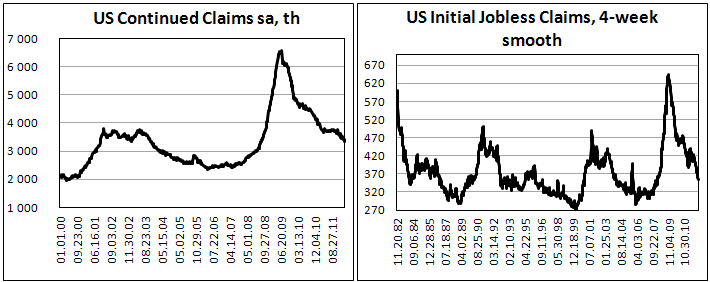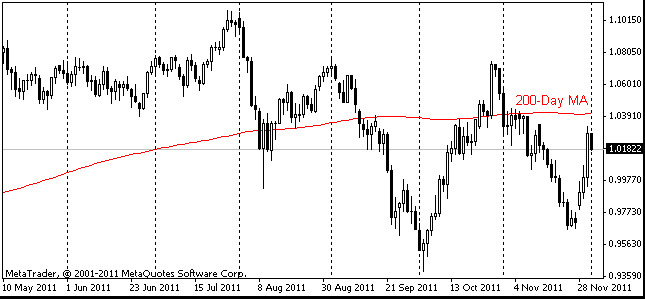EUR/usd
For two weeks in a row the dollar experienced heavy sales, which started on Thursday afternoon and reached their hottest point on Friday. As highlighted in the press, last week the dollar decline was caused by growing concerns about the US and Chinese economic growth. This explanation sounds a bit controversial though, as Friday's data indicated a sudden 4.1% rise in the level of the Chinese coincident indicators in February. Of course, we shouldn't forget that this happened after the 2% decline a month ago, but even with this fact considered the current pace is good. Technically, the markets were disappointed by the statistics on new homes sales. The annual sales rate totaled 313K in February, against 318K a month earlier and the expected growth of 326K. But here again we come across a familiar pattern: a small decline in sales occurs when prices rise. In our case the median home sale price leaped up from 215,700 to 233,700. Under such circumstances the 1.6% decline in sales m/m is more than a good result. In addition, compared to the figures reported the same month a year ago the sales have grown by 11.4%. The market actually doesn't seem to have strong reasons to sell risky assets now. Even the ECB's head draghi mentioned that the euro area is already over the worst. It can be true with the financial system, but it's hardly so with the regional economies, which are still to face a long period of fiscal austerity and economic hardships.

GBP/USD
The British pound has been displaying an enviable steadiness over the last few days, holding tight to the bargaining mark of 1.5860, which coincides with the level of the annual moving average (200 days MA). The poor data on mortgage approvals didn't shake the bulls' confidence. The February data showed a decline from 38K to 33.1K, which is the lowest level since the middle of the last year. Even with the best will in the world, lending in the UK cannot be said to improve as markedly as in the United States. The household debt in Britain is much bigger than in America, and this is connected with the fact that in the 90's Britain experienced a sharp surge in housing prices. Today we won't see any vital statistics on Britain, but tomorrow is going to be an eventful day. So, Monday is likely to come as lull before the storm.

USD/JPY
The Japanese yen was recouping its losses over the second half of the last week. On Wednesday the USD/JPY rose up to 84.0, while on Friday it fell below 82. Earlier today we could also observe some increase in the pair which happened on the modest strengthening of the Asian stock markets. In our opinion, the USD/JPY still has some potential for growth, but it is quite probable that it will hold in the sideway corridor of 80-85 for long.

AUD/USD
The aussie sales on the moderate strengthening of Asian equity markets look really surprising. Such behaviour of market participants reflects their concerns about the next RBA steps in regard to the interest rate. What came in as a special cause for concern was the decision of the Chinese banks to revalue their risks on 20% of the loans issued to the country's local authorities. This step is likely to entail partial debt write-off, which cannot but stir anxiety.
